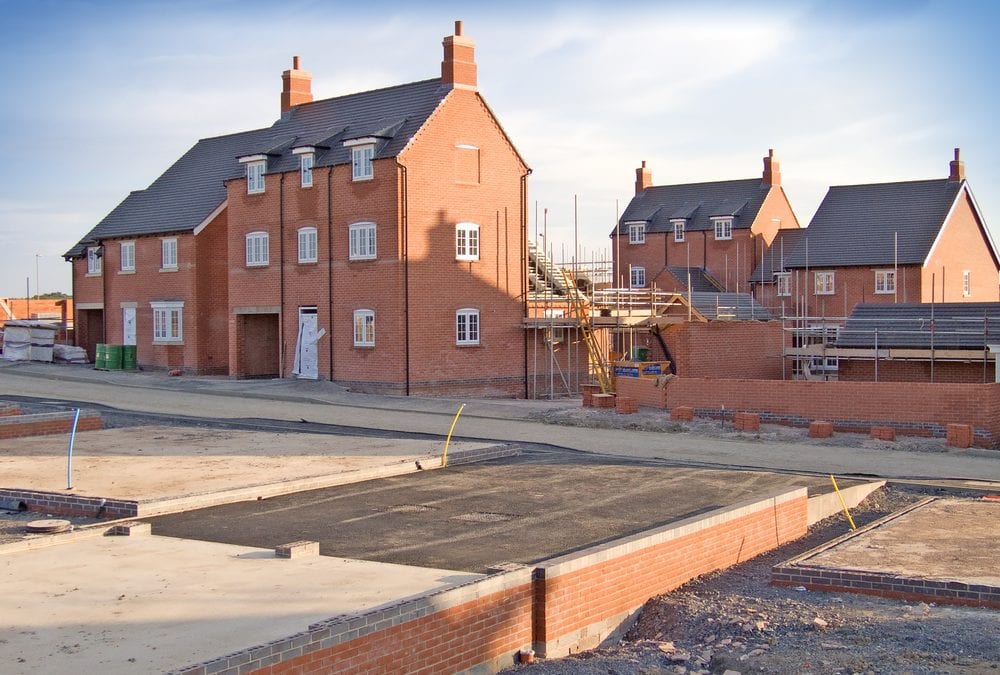
by cwms | May 8, 2025 | Mortgage Advice, Mortgage News, Uncategorized
Your Path to Homeownership: Essential Advice for First-Time Buyers
Embarking on the journey to buy your first home can feel overwhelming, but it doesn’t have to be. With the right strategies, tools, and a little patience, you can turn your dream of homeownership into reality. Here are some essential tips for first-time buyers to guide you through the process.

Start Saving Early
The first step towards buying your own home is to start saving as early as possible. Creating a dedicated savings plan can significantly impact your ability to secure a mortgage. Consider setting up a high-interest savings account specifically for your home purchase. Regular contributions, even if they are small, can accumulate over time and put you closer to your down payment goal. Additionally, consider cutting back on discretionary spending to boost your savings rate.
Exploring Low-Deposit Mortgages
Low-deposit mortgages can be an excellent option if you don’t have a substantial amount saved up for a down payment. Many lenders now offer products that allow first-time buyers to put down as little as 5% of the property value. This can significantly reduce the initial financial barrier to entry. However, with higher deposits you get a better interest rate on your mortgage. Research and compare different lenders to find the right interest rates and terms to suit your financial situation.
Understanding Shared Ownership and New Builds
Shared ownership schemes can be a great way to step onto the property ladder without buying a home outright. This model allows you to purchase a share of a property, typically between 25% and 75%, while paying rent on the remaining share. If you’re considering buying a new-build home, look into programs like Own New, which often offer additional incentives for first-time buyers. Coombes & Wright are approved brokers for Own New, a nationwide scheme funded through a subsidy paid for by the builder. Own New’s ‘Rate Reducer’ is for people buying a new build property and offers a unique mortgage with access to lower interest rates and reduced monthly payments during the initial mortgage period. By combining these opportunities, you can make homeownership more affordable and less daunting.
Professional Mortgages for Newly Qualified Buyers
If you’ve recently completed your qualifications in a professional field, explore professional mortgages explicitly tailored for new graduates or those in fields like healthcare, law, and finance. These specialised products often come with favourable rates and flexible criteria, recognising the higher earning potential of your new career. Engaging with lenders who understand your profession can help you navigate the purchasing process more smoothly.
At Coombes & Wright, our mortgage experts support you at every step, from your first enquiry to successful completion and picking up the keys. We manage the complete mortgage and protection process for you, including all application paperwork and admin, liaising with your lender, solicitors, estate agent or new home builders. Book a free, no-obligation initial consultation to chat through your options. We will get you well on your way to owning your dream home. Happy house hunting!
Book your free no-obligation initial consultation

by cwms | Jan 10, 2024 | Mortgage Advice, Protection Advice
Using a mortgage and protection broker can save you time and worry, handling everything from searching for a deal to applying and communicating with the lender on your behalf. In today’s busy world, we could all benefit from having a calmer, more stress-free life, so here are our top 9 reasons for using a broker…

1. Access to Better Deals & Products
Banks and lenders can only access their own products. By contrast, brokers look at a broad range of mortgages and broker-exclusive deals. We have access to over 65 lenders to find suitable products to meet your needs whether you’re a first-time buyer, remortgaging, moving house or a buy-to-let investor.
2. Manage all the Admin and Legwork
The Coombes & Wright team look after the complete mortgage and protection process for you, including all application paperwork and admin, liaising with your lender, solicitors, estate agent or new home builders. This can be daunting and stressful if you’re unfamiliar with all the jargon and processes. Don’t worry. We do all the legwork so you can relax! With advisers across Hertfordshire in Brookmans Park, Potters Bar, St Albans, Hertford and Abbots Langley, plus London, and Dover and Canterbury, Kent. We offer appointments at a time and location to suit you and are available to answer questions and provide advice.
3. More Streamlined, Less Stressful
As brokers, we deal with lenders daily. We know the application process and background criteria for each to ensure you encounter minimal delays.
4. Benefit from Expert Knowledge
Mortgage brokers have expert knowledge of the mortgage and protection market and can recommend deals that suit your personal situation. We access software to search products faster and more thoroughly than you could. We have day-to-day experience with which lenders are most likely to accept you and help you avoid applying for deals you’re unlikely to get (which can negatively impact future applications).
5. You’re Fully Protected
Brokers have a duty of care to recommend suitable mortgage and protection products and must be able to justify our recommendations. You can complain and be compensated if our advice is not up to scratch.
6. Honest Peer-to-Peer 5-Star Reviews
As consumers in 2024, checking out a company’s customer reviews is second nature. We’re incredibly proud to have over 650 5-star reviews across Google, Trust Pilot and Facebook, reassuring you of our commitment to excellent customer service.
7. Industry Experience
We know the industry – Mortgage criteria have tightened massively over the last few years, with arguably the most comprehensive ranges of products on offer. Affordability tests and checking processes are in place to protect consumers but understandably increase application complexity and timescales. That’s why it’s so important to stay in the loop – and to have a broker on your side who understands it all.
8. On Your Side
Brokers are on your side and work for you! We search for the most favourable mortgages and protection products to meet your individual circumstances. We aren’t on the lender’s side. You get unbiased advice and can choose from a range of lenders and subsequent products rather than being restricted to a single range directly from a lender.
9. Fully Qualified
Brokers are qualified – There’s a lot to consider when choosing a mortgage or protection product such as life insurance or income protection. It’s not as simple as just opting for the cheapest deal. Mortgage & protection brokers must be qualified to give you advice.
So, there you have it, our top 8 reasons to use Coombes & Wright Mortgage Solutions for your next mortgage, remortgage or protection product.
Book your free no-obligation initial consultation

by admin | Jun 4, 2023 | Mortgage News
There are many reasons why saving for a deposit is harder than ever before. The rising cost of living, covid, and Brexit have all negatively impacted. However, getting your foot on the property ladder is not an impossible dream. Here are some tips on saving for a mortgage deposit.

Use the LISA if you qualify
If you’re a first-time buyer aged between 18 and 39, you are eligible to open a Lifetime ISA account. You can pay up to £4,000 each tax year into the account. The government then adds a 25% bonus (£1,000 maximum). You must use your LISA towards purchasing your first home or to fund your retirement. Under current rules, you can have a LISA and a regular ISA. This means that your savings and/or investments will get even more protection from tax. For investments, we act as introducers only.
See if you qualify for further help
Central government has various schemes to help would-be housing buyers, especially first-time buyers. Local authorities may also have their own schemes. Check availability and eligibility in the location where you want to buy.
Be flexible about your exact location
Many buyers only consider homes within reasonable commuting distance of their place of work. However, it can be beneficial to keep your options open and consider what is ‘reasonable’.
What “reasonable” means in practice depends partly on your outlook and lifestyle, partly on your transport options and partly on how often you have to go into your office and place of work. If you’re fully or largely remote, it may be worth looking at areas further afield or with limited transport options, often reflected in the local property prices.
Buy a property in need of upgrading
Looking for a property needing upgrading is a bit like thrifting in charity shops. There are definitely bargains to be had, but you need to be alert and quick. You also need to be realistic about your goals and totally honest about what you can and can’t do yourself.
Secondly, be clear about how long it will take you to make the necessary changes and the property habitable. This would typically mean ensuring that it was structurally sound (wind and watertight) and had essential utilities. You might be able to live without heating in summer, but in winter, it’s a different story
Thirdly, be realistic about your budget for the updates. Buying a “fixer-upper” isn’t necessarily more affordable overall than buying a home in pristine condition. It just means that you can pay a lower upfront cost, thus making your deposit savings go further. You can then do upgrades yourself or pay for someone else to do them out of your ongoing income.
Consider downsizing while you save
If you can “make do and mend” with a smaller property while you save, you may be able to build a deposit more quickly. Similarly, you might want to consider moving to a more affordable location. A cautionary word, ensure this move doesn’t excessively increase your travel and living costs.
For help and advice about getting on the property ladder, contact Coombes & Wright Mortgage Solutions. We offer free initial consultations without obligation.
Book your free no-obligation initial consultation
For investments we act as introducers only

by admin | Apr 18, 2021 | Mortgage News
If you don’t like the term “haggling”, think of it as “negotiation”. That’s essentially what it is. In simple terms, the seller (or their agent), is trying to achieve the highest possible price for their home. You are trying to achieve the lowest possible price for the property. This is not about “win/lose”. It’s about reaching an agreement. Here are some tips to help.
Prepare thoroughly
Guide prices are a guide to what a seller (or their agent) wants for the property. You should therefore regard them as sources of information rather than as instructions. What you really need to know is the state of the local market and the seller’s situation. You can find out a lot about the first point with some thorough digging around the internet.
The key point to understand is that you need recent, local data. Recent data tells you what the market is doing now, not what it did in the past. Local data tells you how the market is performing in the locations which interest you. To take an extreme example, there’s no real point in looking up data from London if you want to buy property in Aberdeen.
In fact, if you’re looking at buying in a city, then you want data at local-authority level if not postcode level. Be aware that there can be significant differences in property prices in different areas of a city. You need to be sure that you’re comparing like with like.
Get preapproved for a mortgage
If you need a mortgage, then get preapproved for one. This marks you out as a serious buyer and reassures sellers. Think about whether or not there are any other steps you could take to make a seller’s life easier. For example, can you be flexible with your move date?
Understand the seller
It’s always safer to deal with a seller who has a clear reason to move. This reduces the chances of them pulling out of the sale, leaving you high and dry (and possibly out of pocket). The more motivated a seller is to move, the more chance there is that they will be willing to accept a lower price in return for a quick and convenient sale.
There are, however, a couple of caveats here. Firstly, a seller may have a baseline price below which they cannot, or just will not, go. For example, they may need (or just want) enough to clear their mortgage. Secondly, the more competition there is for a property, the more likely it is that someone else will offer both a higher price and a quick and convenient sale.
Keep a clear head
Until the sale is complete, in fact, arguably until you’ve moved in, you’re buying a property. It may be someone else’s home, but it is not yours. Keep that in mind at all times.
Obviously, you should only be looking at properties where you would be happy to live. You must, however, avoid getting emotionally attached to them. Your attitude needs to be that you want a good deal for your money and will go on looking until you get one.
If any given property is out of your budget (or just overpriced) and the seller is not prepared to reduce the price, then just move on. If you really liked the property, then keep an eye on the listing. If the seller does not get a sale, they might become more flexible on price further down the line.
By the same token, however, be careful about focussing so much on getting a bargain that you lose out on a great property you could have afforded.
Think carefully before securing other debts against your home. Your home may be repossessed if you do not keep up repayments on your mortgage
Please contact us for any more information.

by admin | Dec 6, 2020 | Mortgage News
Since 2001, the UK has had no fewer than 16 housing ministers. Seven held the post under a Labour government. Nine have held the post under a Conservative government. None have succeeded in resolving the many issues with the UK’s housing market. Now it’s Boris Johnson’s turn to try.
A conference to remember
Even though the Conservative party conference is an annual event, the 2020 conference will probably go down in history as an event to remember. It was the first time the conference had been held virtually. The reason it was held virtually was due to a global pandemic and, of course, it was the last Conservative party conference before Brexit.
It was therefore entirely understandable that the Prime Minister would use the occasion to try to spread at least some cheer and general positivity. One of the ways he did this was by setting out a plan to convert the current under 40s from “Generation Rent” to “Generation Buy”.
The Prime Minister’s plan is thin on detail
At present, there is virtually no specific information available about the PM’s intentions. All he has said is that he intends to make it possible for first-time buyers to buy homes with only a 5% deposit. This statement in itself is rather odd because it is already possible for them to do so via the existing Help to Buy Equity Loan scheme.
As a quick reminder, this was due to have been closed at the end of March 2021. It has, however, been officially extended to the end of March 2023. It will, however, only be available to first-time buyers. There will also be some adjustments to the level of help available. The fundamental mechanics of the scheme will, however, remain the same.
To recap, under the existing Help to Buy Equity Loan scheme, buyers put down a 5% deposit. The government guarantees 20% of the remainder so the buyer only needs a mortgage for the remaining 75%. The government loan is interest-free for five years. After this time, the buyer can either buy them out or pay interest on the loan.
Help to Buy Equity Loan Part 2?
If Boris Johnson simply meant to extend the existing Help to Buy Equity Loan scheme without any changes, then presumably he would just have said so. This suggests that, while the basis of the idea might be the existing Help to Buy Equity Loan scheme, there are going to be some changes to it.
The risks of extending the Help to Buy Equity Loan scheme
Extending the Help to Buy Equity Loan scheme to include completed property might placate those who object to homebuilders profiting from the taxpayer. It would, however, create additional risks, which could rebound on the taxpayer.
The first risk is the risk of creating a housing bubble, or, at the very least, creating excessive house-price inflation. If it does, then there are massive risks to everyone, including, possibly especially, the next generation of first-time buyers.
The second risk is the risk of default. Quite bluntly, the Help to Buy Equity Loan scheme does not make housing more affordable by making it less expensive. It makes it more affordable by restructuring the financing. It also puts the taxpayer on the hook for much of the risk of default on that financing.
Your property may be repossessed if you do not keep up repayments on your mortgage.









Recent Comments